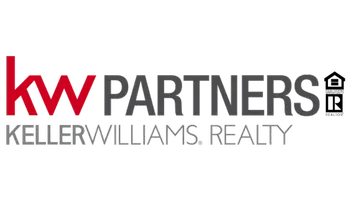How to Finance Your Home Purchase: A Detailed Guide to Securing the Funds

Buying a home is a significant financial undertaking, possibly one of the most substantial investments you'll make in your life. Thus, understanding how to finance your home purchase is crucial. This detailed guide aims to help you explore various options and make an informed decision on financing your dream home.
Understanding Your Financial Status
Before exploring your options, it's essential to assess your financial health. This involves understanding your credit score, income stability, savings, and existing debt. Lenders will review these factors when determining your eligibility for a loan, so it's crucial to familiarize yourself with them.
A higher credit score, stable income, and substantial savings can lead to more favorable loan terms. Similarly, having a lower debt-to-income (DTI) ratio will make you a more attractive borrower. If your financial assessment reveals areas for improvement, take time to address these issues before applying for a mortgage.
Exploring Mortgage Options
When it comes to home financing, a mortgage is the most common tool used. There are several types of mortgage loans, each with its own set of terms, rates, and eligibility requirements. Understanding these differences can help you choose the right mortgage for your needs.
A conventional mortgage is a loan not insured by the federal government. Conventional loans require good credit and typically demand a 20% down payment, although some lenders may accept less.
Government-insured mortgages, on the other hand, are loans insured by federal agencies. They include FHA loans (insured by the Federal Housing Administration), VA loans (guaranteed by the Department of Veterans Affairs), and USDA loans (backed by the U.S. Department of Agriculture). These loans often have more relaxed credit requirements and lower down payments, making them attractive for first-time homebuyers or those with less-than-perfect credit.
Working with Mortgage Lenders and Brokers
Navigating the mortgage process can be challenging. To ease this process, you can choose to work with a mortgage lender or a mortgage broker.
A mortgage lender is a financial institution that lends money directly to you. They could be banks, credit unions, or online lenders. You can apply directly to these lenders, and they will assess your financial situation to determine the loan amount and terms you qualify for.
Mortgage brokers, in contrast, don't lend money directly. Instead, they act as intermediaries, helping you find the best mortgage loan from a variety of lenders. They can save you time and effort by comparing loans from different lenders on your behalf, but they do charge a fee for this service.
Considering Down Payment Options
The down payment is a critical part of financing your home purchase. It's the upfront amount you pay towards the cost of the house. The size of your down payment can influence your loan terms and interest rate, and it can determine whether you'll need to pay for private mortgage insurance (PMI).
A 20% down payment is traditionally recommended for a conventional loan to avoid PMI. However, depending on the mortgage type and your financial situation, you may be able to put down as little as 3-5%. There are also down payment assistance programs available that can help eligible buyers reduce their upfront costs.
Understanding Closing Costs and Additional Expenses
Beyond the mortgage and down payment, there are additional costs to consider when financing a home purchase. Closing costs, for example, can amount to 2-5% of your loan amount and include fees for loan origination, appraisal, title insurance, and more. You also need to account for ongoing costs like property taxes, homeowners insurance, and maintenance.
Homeownership is an exciting journey, and while the process can seem complex, understanding how to finance your purchase can make it manageable. By assessing your financial situation, exploring your mortgage options, understanding the roles of mortgage lenders and brokers, considering your down payment options, and accounting for additional costs, you'll be well-prepared to finance your home purchase.
Categories
Recent Posts










GET MORE INFORMATION
